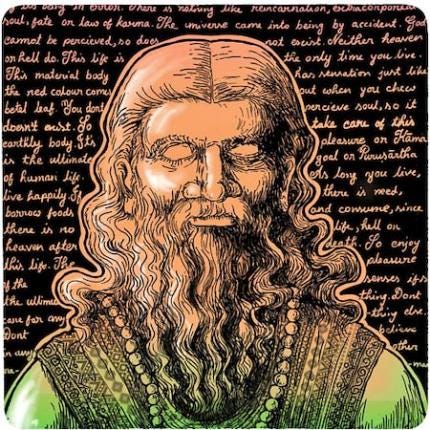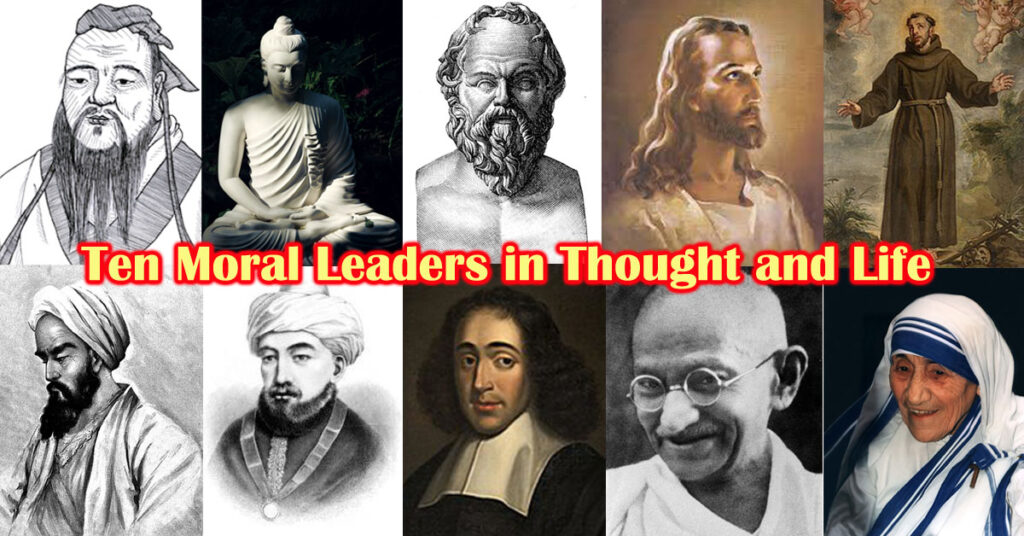Dr Saheb Sahu
Charvaka, (from Sanskrit charu and vak meaning “alluring speech”) originally known as Lokayata, is an ancient school of Indian philosophy founded by Brihaspati, although some scholars dispute this. Lokayata literally means, belonging to the world of senses. The exact dates of the founding of the system are unknown. Charvaka holds direct perception, experimental, and conditional inference as proper source of knowledge. It embraces philosophical skepticism and rejects Vedas, Vedic ritualism and supernaturalism. Most of the primary sources of Charvaka, the Barhaspatya sutra (c.600BCE) are lost. Its teachings have been compiled from historic secondary sources, such as those found in the shastras, sutras and the Indian Epic poetry as well as from Jain and Buddhist literature.

Charvakas rejected many of the standard religious conceptions of Hindus, Buddhists and Jains, such as afterlife, reincarnation, samsara, karma, and religious rites. They were critical of the Vedas, as well as Buddhist scriptures. Charvakas believed that there was nothing wrong with sensual pleasure. Unlike many of the Indian philosophies of the time, Charvakas did not believe in austerities or rejecting pleasure out of fear of pain and held such reasoning to be foolish. They rejected the need for ethics or moral, and suggested that “while life remains, let man live happily let him feed on ghee (clarified butter) even though he runs into debt”.
The Sarvasiddhanta Samgraha states the Charvaka position as follows,
There is no other world other than this;
There is no heaven and no hell;
The realm of Shiva and like regions,
are fabricated by stupid imposters. — Sarvasiddhanta Samgraha, Verse 8
The enjoyment of heaven lies in eating delicious food, keeping company of young women, using fine clothes, perfumes, garlands, sandal paste… while moksha is death which is cessation of life-breath… the wise therefore ought not to take pains on account of moksha.
A fool wears himself out by penances and fasts. Chastity and other such ordinances are laid down by clever weaklings. — Sarvasiddhanta Samgraha, Verses 9-12
Buddhist, Jains, Advaita Vedantins and Nyaya philosophers considered the Charvakas as one of their opponent and tried to refute their views. These refutations (which have been preserved in writings) are the indirect sources of Charvaka philosophy. The arguments and reasoning approach Charvaka deployed were significant that they continued to be referred to, even after all the authentic Charvaka texts had been lost.
One of the widely studied references to the Charvaka philosophy is the Sarva-darśana-saṅgraha (etymologically all-philosophy-collection), a famous work of 14th century Advaita Vedanta philosopher Madhava Vidyranya from South India, which starts with a chapter on the Charvaka system. After invoking, in the Prologue of the book, the Hindu gods Shiva and Vishnu (“by whom the earth and rest were produced”), Vidyāraṇya asks, in the first chapter:
…but how can we attribute to the Divine Being the giving of supreme felicity, when such a notion has been utterly abolished by Charvaka, the crest-gem of the atheistic school, the follower of the doctrine of Brihaspati? The efforts of Charvaka are indeed hard to be eradicated, for the majority of living beings hold by the current refrain:
While life is yours, live joyously;
None can escape Death’s searching eye:
When once this frame of ours they burn,
How shall it ever again return?
According to Amartya Sen (professor of economics and philosophy, at Harvard); “The active presence of atheism and materialism continued through the regimes of Muslim Kings. Indeed even in the late sixteenth century, when the Moghal emperor Akbar held his multi-religious dialogue encounters in Agra, the Charvaka school of atheism was well represented among the alternative positions that were selected for presentation as Akbar’s adviser Abul Fazl noted. In the philosophical discourses throughout Indian history atheists and skeptics make frequent appearances, even though in many cases, their points of view ultimately rejected, they get their say” (Sen)
Sources:
1-Wikipedia.org/Charvaka philosophy
2- Amartya Sen. The Argumentative Indian. Penguin Books, New York: 2005

